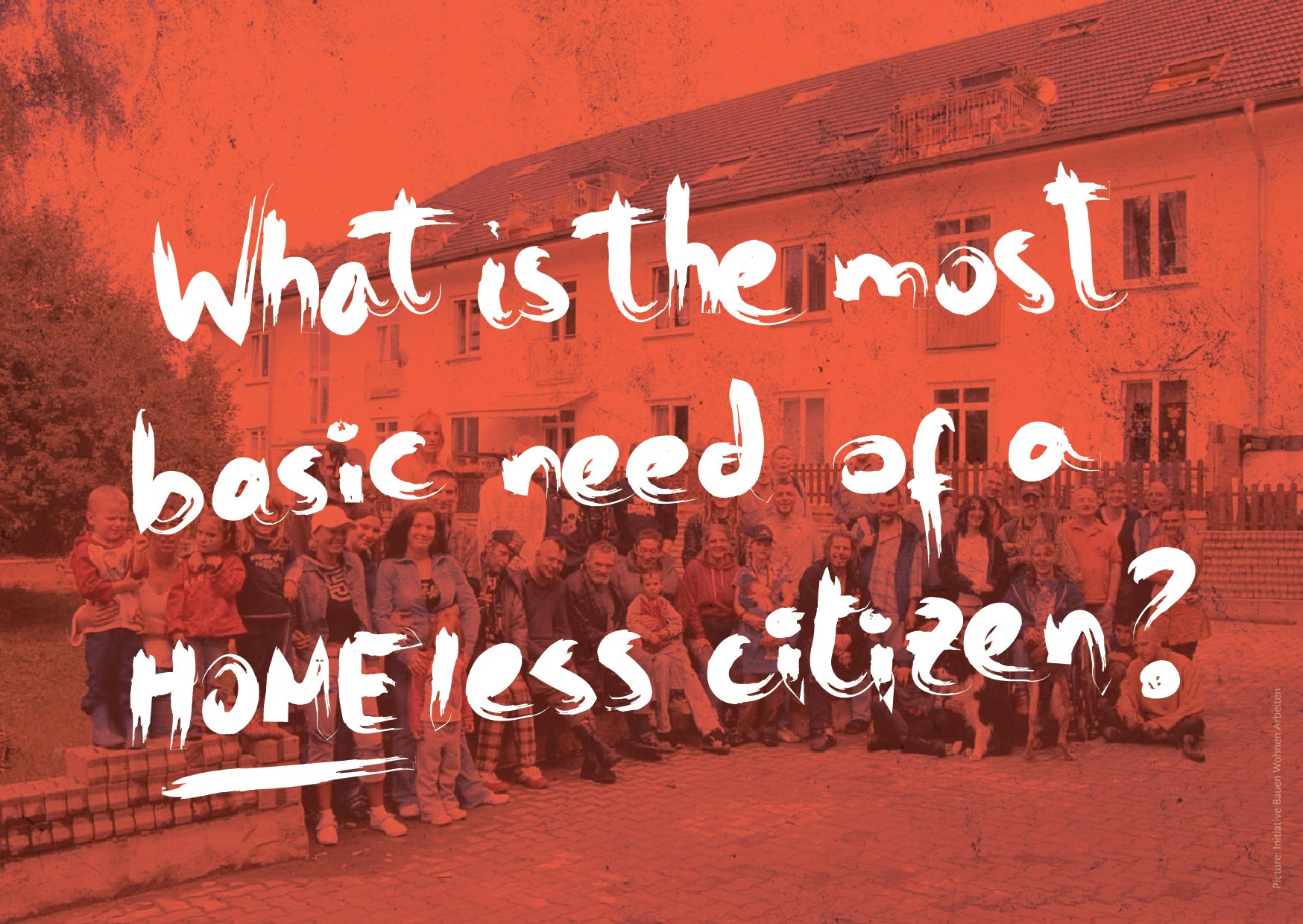MA THESIS
Designing housing solutions by, with, and for homeless citizens
Homelessness from a Service Design and Systemic perspective - The active role of homeless citizens in Germany and Cologne.
Role
Project lead and Service Designer (Service, UX, UI Design)
Project partners
“Initiative Bauen Wohnen Arbeiten” und “Selbstvertretung wohnungsloser Menschen”
Duration & location
2018 - 2019 (Cologne, Germany)
CHALLENGE
How might we use Service Design to assess the impact of the IBWA and co-create a replicable model out of it?
CONTEXT
Since 1998 there is a unique organization working on solving homelessness in Cologne: the Initiative Bauen Wohnen Arbeiten (IBWA). The IBWA provides affordable and permanent housing, assisted living support, and job opportunities for those in need.

USER-CENTERED AND PARTICIPATIVE PROCESS
I used a design thinking approach and divided the process into 3 phases:
IBWA’s quality check.
Co-creation with inhabitants.
Synthesis and creation of the IBWA’s model.
I worked together with homeless citizens, social workers, and policymakers to make this possible.






OUTCOME
IBWA identity
IBWA Model
IBWA Website


IMPACT
Publication and award
The model developed in this thesis was considered one of the “50 Out-of-the-Box Solutions to Homelessness and Housing Exclusion” by the Housing Solutions Platform and published in the book with the same name.
IBWA Assessment
After more than 20 years and thanks to the project, a qualitative and quantitative assessment was made.
Framework for replicability
This model is supporting the planning process for a second IBWA.



CONCLUSIONS AND LEARNINGS
Design is a powerful tool to create impact.
Services need to be designed WITH and FOR users.
Service providers and project teams need to recognize users as ACTIVE agents.
Approaches like “self-help group” (٭) and “co-production”(٭٭) can be adopted in any project to ensure a sense of empowerment in users, and therefore the success and sustainability of the project.
Systemic issues need work at different levels.
(٭) Self-help groups recognize the potential in each individual and bring individuals experiencing a similar problematic situation together. By bringing them together as a homogenous collective aware of their rights, they have tremendous strength and power.
(٭٭) Co-production refers to a way of working where service providers and users, work together to reach a collective outcome

This project was developed during my Master program in Integrated Design at KISD - TH Köln
